Demand For Gold Soars In Iran In Q1 2023: World Gold Council
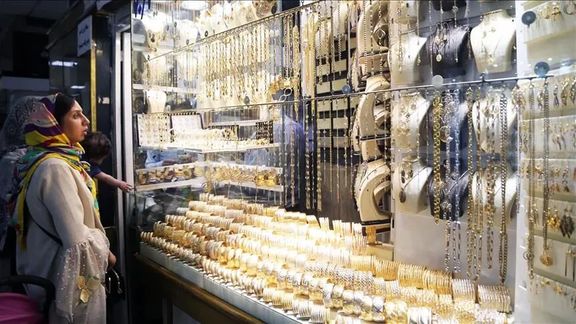
The World Gold Council announced a major jump in the purchase of gold coins and bars by Iranian citizens in the first quarter of 2023.

The World Gold Council announced a major jump in the purchase of gold coins and bars by Iranian citizens in the first quarter of 2023.
According to the council, Iran saw bar and coin investment of 13 tons in the first three months of 2023 – which means a 26% increase compared to the 10 tons five-year quarterly average.
“Investment was spurred by a weak domestic currency, which fed through to soaring local gold prices, and extreme inflation,” added the World Gold Council in its report on Friday.
Disruption to the supply of gold coins has also pushed premiums up.
However, higher prices dampened demand for jewelry in the country. The council says Iran saw 15% less demand for jewelry than last year, with gold price rises magnified by local currency depreciation against the dollar.
Iran's rial has halved in value since August 2022, fueling inflation, which has surpassed a 50-percent annual rate. Experts say the country will go into hyperinflation in the coming months as the weak currency pushed prices higher.
Hyperinflation is a very high and typically accelerating inflation, which quickly erodes the value of the local currency -- rial in this case -- while the prices of all goods increase exponentially. In such a situation, people move to minimize their holdings in the national currency and switch to more stable assets like gold coins and bars.
The Central Bank of Iran announced late in March that the annual inflation rate stands at 46.5 percent. Although the official inflation rate is usually less than what actual prices reflect, even a 46.5-percent inflation is among the highest in Iran in more than 30 years.
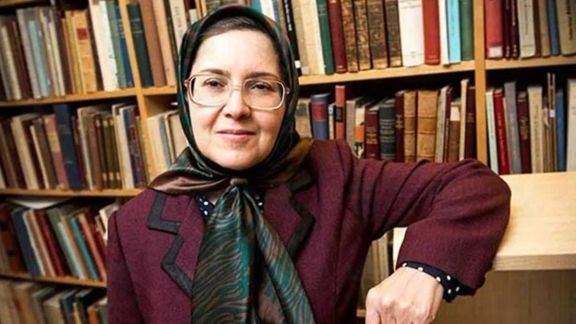
Alireza Arafi, the dean of the Qom Seminary says Iranian clerics will stand firm on their position regardless of recent attacks on by ordinary people on clergymen.
Speaking before the Friday prayers in Qomm on May 5, Arafi was referring to at least four clerics who have been killed in recent months and a few others who suffered serious injuries by incidents of car ramming. He said, "The clerics' martyrdom was both painful and a source for pride."
Arafi, however, attributed the attacks to "conspiracies hatched and engineered by the enemies in the form of a hybrid war." This comes while some media outlets and sociologists in Iran say the attacks show young Iranians' anger and frustration as their demands have been ignored for several years.
Meanwhile, prominent female jurisconsult Sedigheh Vasmaghi has welcomed a statement by Qom cleric Ayatollah Mohammad Javad Alavi Boroujerdi. The cleric had recently said about the attacks that "The clerics' words and approach has led to insecurity and created grudge and hatred in the society."
Borujerdi had further called on the clerics who are part of the Islamic government in Iran to apologize to women and the rest of the nation for their words and approaches toward women and the issue of hijab.
Vasmaghi agreed with him that clerics' school of thought has made the Iranian society insecure. She also said that the clergy owe much to Iranian women for what they have said during the past four decades.
She also said that they should have paid attention to warnings about public anger and the widening gap between themselves and the people. Vasmaghi reiterated: "There should be security in the society for all citizens. It is not possible to keep one part of the society safe at the price of others' insecurity."
Meanwhile, the firebrand Friday Imam of Tehran, Ahmad Khatami claimed that clerics are still popular in Iran although their image is being tarnished on social media. Although he tried to pretend that he was unshaken as a result of the attacks, yet he made a few fatalistic remarks such as "We all have to leave this world one day anyway," and "We will have to go no matter if we like it or not. We are all bound for eternity."
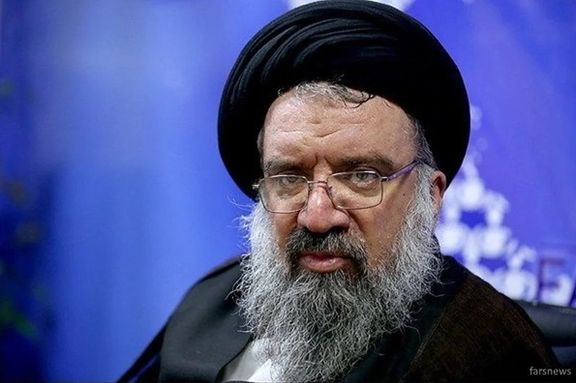
Khatami also dedicated a large part of his sermon to the attacks on clerics and praised them for facing death in cold blood. He said, "The reason for these attacks is that the clerics' presence annoys arrogant powers [the United States]." However, he did not explain why major politicians like himself are safe while the attacks often target low-key clerical figures.
Some unconfirmed social media reports said the Ministry of Interior has warned clerics at seminaries to leave their robes and put on ordinary outfit when they have to go into the public.
Khatami then called on the Judiciary to take swift measures to punish those who have attacked the clerics. The latest attack still remains a mystery in Bobol in the Caspian region where a cleric, Ebrahim Fazel, who is the son of the dean of the city's seminary was found dead in the sea and his death remains unresolved. He asked the Judiciary to make Iran insecure for those who attack the clerics.
In another development, Hossein Ansarian, a prominent cleric who has recently criticized the government for its heavy-handed and outdated approach to compulsory hijab, said: "Some of us clerics belong to 100 years ago, some others to even 200 years ago and are not fit for today. What we say from the pulpits are no good for the modern society." He added that some clerics who lived in the 20th century preached in a way that served modern men and women.
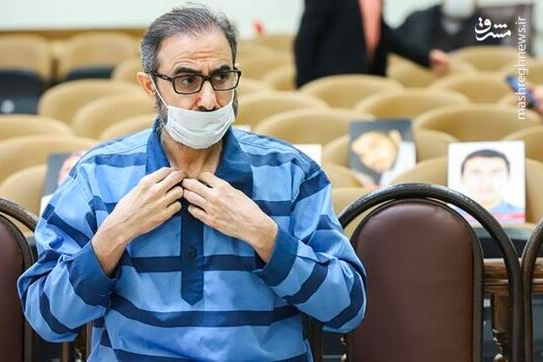
The execution of Iranian-Swedish political activist Habib Asyud has been condemned by the government in Sweden.
The Swedish Foreign Ministry summoned Iran’s deputy ambassador to Stockholm over the hanging on Saturday morning of the dual-nationality opposition figure.
Asyud, former leader of the Arab Struggle Movement for the Liberation of Ahwaz (ASMLA), had been convicted of leading an Arab separatist group accused of attacks including one on a military parade in 2018 that killed 25 people.
He was sentenced to death for being "corrupt on earth", a capital offence under Iran's strict Islamic laws.
The Swedish foreign ministry said in a statement that the death penalty is an inhumane punishment, and Stockholm condemns it along with other European Union countries.
Asyud, 49, was put on trial by a revolutionary court in Tehran in December. He was not allowed to choose his own defense attorney and was represented in his trial by a court-appointed lawyer. He was also forced under duress to make self-incriminating confessions.
Iranian authorities say he was found guilty for leading ASMLA (Harakat al-Nidal in Arabic), a movement which advocates the separation of southwestern Khuzestan Province and for plotting "numerous bombings and terrorist operations" in the oil-rich province with a large Arabic speaking population.
Iran's relations with Sweden have been strained since July 2022 when a Swedish court sentenced a former Iranian jailor, Hamid Nouri, to life imprisonment over executions of political prisoners in 1988.
Iran's foreign ministry spokesman Nasser Kanani in a statement “strongly condemned” the Swedish court’s “politically-motivated and unacceptable” verdict against Nouri, saying the Stockholm government would be responsible for the damage the verdict would cause in bilateral relations.
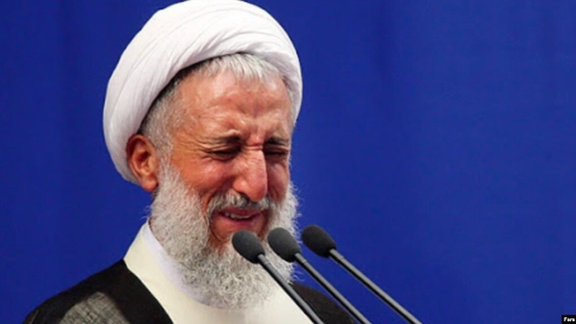
Clerics in Iran are “oppressed” and most live below the poverty line, according to Tehran Friday prayer imam Kazem Seddiqi.
The noted scholar alluded to members of the clergy being “ruthlessly” targeted by some “cruel people”.
Seddiqi said he hoped that the recent killing of clerics “would become a good origin of a cultural movement in society”.
He was speaking on Friday as the body of a missing cleric was found in northern Iran.
Ebrahim Fazel had gone missing on Tuesday as he had traveled from the religious city of Qom – where he was studying at the seminary – to his hometown in the northern province. His body was found in the coastal waters near the city of Jouybar.
The circumstances around his death remain unclear. The evidence has yet to reveal whether he drowned or his body was thrown into the water.
In recent months members of clergy have increasingly become targets of attacks by Iranians who see them as symbolizing the nation’s problems.
Last month, media close to the Revolutionary Guard reported that two clerics were targeted by a driver in Qom after another similar attack a few days earlier. It was the third attack on clerics within a few days. Tehran police announced on April 27 that a manhunt was underway to find another driver in the attempted murder of a cleric in the capital.
Since the 1979 revolution, the clergy have gained increasing power, but discontent has risen in recent years, particularly amid waves of protests over economic, political, and civil rights issues.
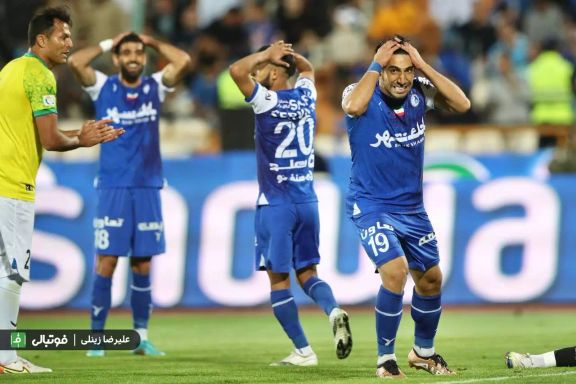
A Chinese businessman says he wants to buy a state-owned top-flight Iranian football club mired in debt – but the claim has been dismissed by Tehran.
A video posted on Friday showed the Chinese national watching a match in Abadan between his target club Esteghlal and Naft FC.
In the clip published by Borna news agency, which is affiliated with the ministry of sports, the businessman said he wants to buy Esteghlal.
He presented himself as the representative of a Chinese state company, and said that he plans to visit Iran's football infrastructure to start negotiations to invest in the popular football club.
But on Saturday the IRNA state news agency wrote that the managers of Esteghlal are not aware of this proposal. It added that the law prohibits Esteghlal and Persepolis clubs from being sold to foreigners.
IRNA said all the claims and reports of the possible purchase are false.
Both state-owned and two of the biggest football clubs in Iran, Esteghlal and Persepolis are in dire financial trouble. Although the clubs are both successful on the field, off the field their stability is now in doubt due to the mounting debt.
Esteghlal owe millions of dollars to its previous foreign players and coaches, while Persepolis have suffered financially within the past years.
The Asian FC Champions League (ACL) have already banned Esteghlal for one season due to unpaid debts. Now the Iranian giants face a second straight year that they might be excluded from the competition.
As a result of their failure to meet the entry requirements for the 32-team tournament, Esteghlal, their arch-rival Persepolis, and Gol Gohar Sirjan were expelled from the competition last season.

Iran had succeeded in reaching a deal with the United States in 2021 to lift the terrorist designation of the Revolutionary Guard, former President Hassan Rouhani says.
Rouhani in a meeting on May 3 with his former officials and aides said that before his term in office ended in mid-2021, his government had convinced the Biden administration not only to lift IRGC’s Foreign Terrorist Organization (FTO) designation by the Trump administration, but also to lift sanctions on Supreme Leader Ali Khamenei’s office and entities.
Rouhani has recently been holding regular meetings with his former aides, which is seen as an act of opposition toward hardliners, which control all three branches of the government.
One of the first foreign policy initiatives by the Biden administration in early 2021 was to launch indirect negotiations with the Islamic Republic to revive the 2015 JCPOA nuclear deal that former President Donald Trump had abandoned in 2018. This entailed lifting of sanctions that Trump had imposed.
The talks that lasted 18 months and eventually reached a deadlock in September 2022, were partly kept secret, and it is not clear if Washington had agreed to lifting the sanctions that Rouhani is taking credit for.
One thing which is clear is a five-month hiatus in the negotiations in Vienna from June to November of 2021 – the period from Iran’s presidential elections to when the new administration decided to return to talks.

Iran’s hardliners had readied themselves to capture the presidency, with Khamenei’s apparent blessing. The constitutional Guardian Council loyal to the Supreme Leader, disqualified most serious candidates, leaving the path open for Khamenei loyalist Ebrahim Raisi to get elected in a low-turnout vote.
Whatever Rouhani’s negotiating team had achieved in the nuclear talks from April to June 2021 became meaningless once the hardliners took office.
Rouhani was quoted by reformist media on Saturday as having said during his meeting that his government had wanted to solve as many problems as possible for the incoming administration. “Everything was completed for the revival of the JCPOA and was ready,” he was quoted as saying.
The former president went on to say, “When I informed the Supreme Leader [about lifting of the sanctions], he was very happy, but unfortunately this did not come to fruition.”
Rouhani also took credit for many domestic accomplishments and claimed that several major projects were almost completed and ready to be inaugurated by the new administration. He implicitly criticized the Raisi administration of not following up and leaving these projects in limbo.
In the wake of the unprecedented anti-regime protests last fall, reformist and centrist regime insiders have been trying to drive home the point that hardliners, having, monopolized power in parliament and controlled the presidency, have failed to solve the country’s multiple crises.
In fact, after the breakdown in the nuclear talks, the economic situation has worsened, with the national currency rial losing half its value against the US dollar, the euro, and other major currencies.
Many pundits and politicians have been blaming the deepening political and economic crises on the hardliners for not reaching a nuclear agreement with the United States, which would lift crippling sanctions.